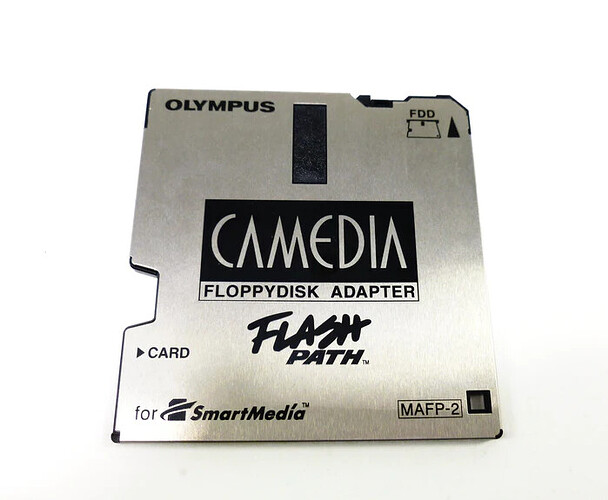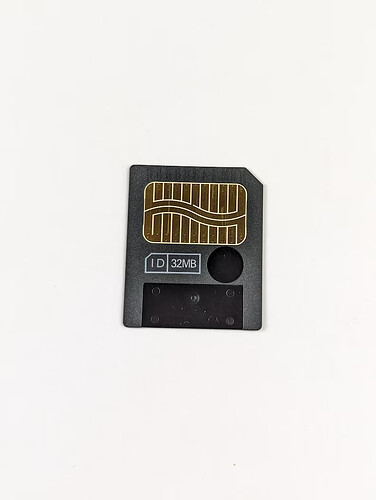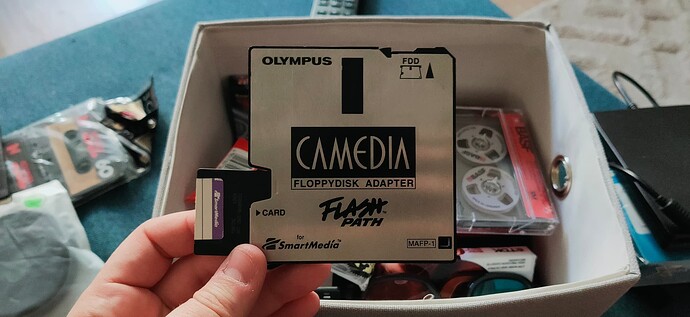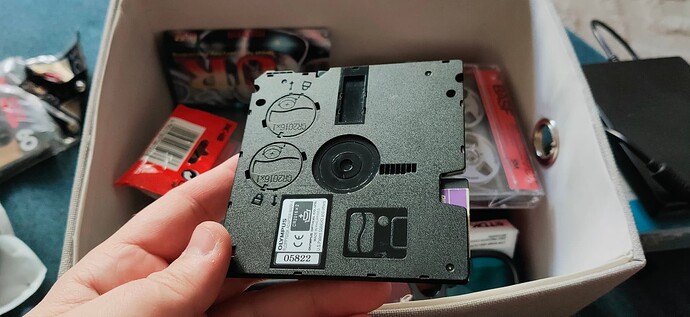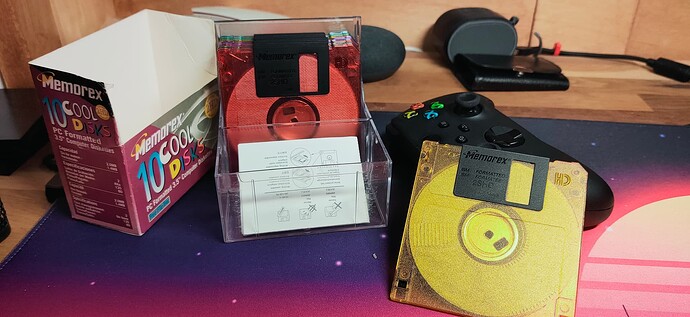and two shelves above that - though not directly computer related - a Nagra: a very high-end reel-to-reel tape machine often used in the film industry.
What is the computer like thing below that?
“Nagra” comes from a Polish word meaning “(it will) record”, wonderful devices - Stefan Kudelski was a genius
The label reads “ORITAC 4300”. I can’t find any information on this.
(There’s an electronics component supplier “ORITAC”, but they are only in business since 2000, so this is very likely unrelated.)
There seem to be switches for 16 bits (probably the address bus range).
Search for OKITAC instead!
Yeah, we also had some public institutions that were the last ones to use floppy disks. I think they still had them going in 2008-2009 and a while after they also gave that up in favor of online submissions. We had an accounting department that literally had to have floppy disks and units to write the data on them for monthly situations that had to be submitted.
On a slightly different note, I was rather disappointed that there was no real adapter. The closest thing is the FlashPath from Olympus (I actually own one of these):
It uses Smart media cards:
Has slots for two coin batteries that assumably power the internal controller.
… But I was unable to ever make that work with a regular floppy drive. They did however work (obviously) for their intended purpose with the supported Olympus cameras. I suspect it’s because they developed their own reading protocol that allowed reading virtually beyond the expected capacity of the standard floppy disks while the regular floppy drives had no way of making that abstraction.
Edit.
I actually went and looked for it. Here is an image with the floppy and card side by side for a scale comparison and the back of it.
![]() Well,… either I need glasses or the photo needs better resolution, or both? Also, in the age of nascent AI, I my try as an excuse that this wasn’t in training set. (Not sure, if I stumbled over OKITAC before.)
Well,… either I need glasses or the photo needs better resolution, or both? Also, in the age of nascent AI, I my try as an excuse that this wasn’t in training set. (Not sure, if I stumbled over OKITAC before.)
I still have my Fujifilm digital camera that takes SmartMedia, but I never had the FlashPath. Also have the huge Sony Mavica Zoom, which can fill a floppy with a few seconds of potato-quality video.
By adapter, you mean a way of using modern devices as if they were a floppy? Goteks are good for that, as long as your system uses a drive controller that a Gotek USB interface can understand. FlashFloppy seems to be the firmware to use with it.
I know of one local place that still uses floppies. They make very robust assistive technology devices, and most of their hardware is machined out of solid aluminium. They use a wire spark erosion machine to do this, and it’s driven from a 286 PC. It works for them (for now).
Well, by adapter I was thinking more like a floppy disk enclosure with the magnetic emitter that’s able to relay data from an SD card (for instance). Ideally, it would work by picking up image files from the SD which you could toggle by some small switches on the side of the floppy. The usecase for that would be with old devices that you can’t use Goteks with, such as laptops, some music keyboards with exotic floppy drives, dedicated hardware equipped with similar custom floppy ports.
Gotek does a great job as a 2.5 device and I have a few, one plugged in my Amiga 500 and works great. But a real, closer to reality way of handling floppies I think is what I’m suggesting. Nowadays it would be even childsplay to use a microSD with such an enclosure. But it still needs a controller to toggle images, feed data to a magnetic head and that requires some engineer’s attention plus some resources to produce it.
Given that the only “target user” still using floppies is (will be) mostly on this forum (sooner or later), it will probably never be worth the trouble. ![]()
If there would have been any serious candidate to push such a thing forward, that would have been the stalling industries that still use it (or used to), but as this topic suggests (quite understandably, I might add) they chose to move off.
And to be completely fair, it’s just a matter of nostalgy. Taking myself as an example, I know by heart every sound that the floppy makes and even what that sound means. I enjoyed a lot of games back in the 90’s played off from them, either from my ZX Spectrum or PC. So, I like floppies. But I can’t imagine the same feeling for punch-paper, for instance which is even older technology, maybe nostalgic for other folks.
So, I’ll just keep a few old floppies around and keep working on my 2024 projects. ![]()
These below are my favorites, though I haven’t used them for any project yet. I still keep using the other less fancy looking ones for that.

